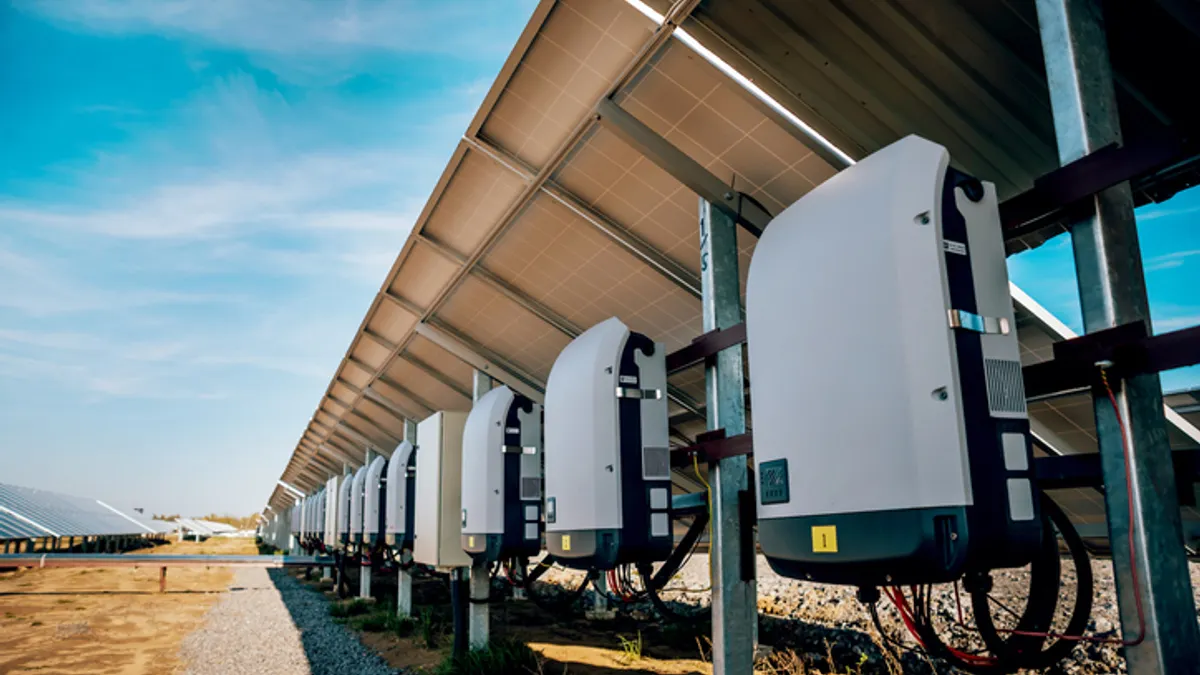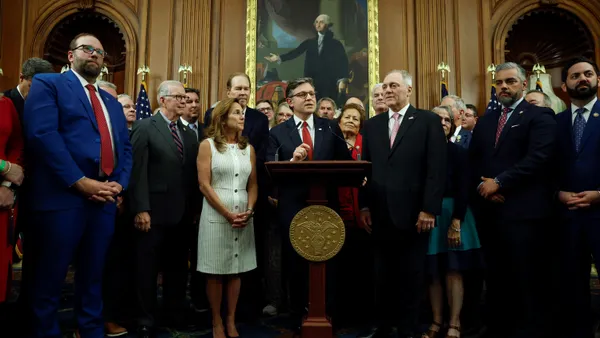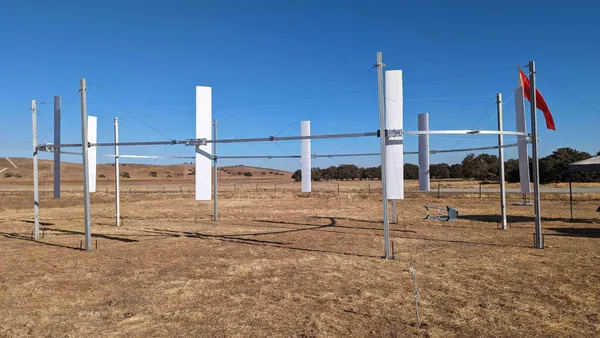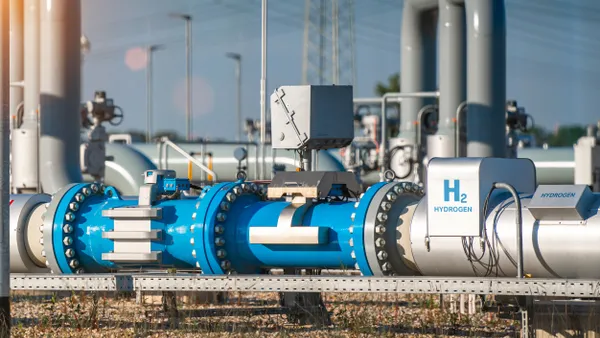Dive Brief:
- Bloomberg New Energy Finance (BNEF) data shows the tech industry has signed deals for 10.4 GW of renewables and tech-related corporate purchasing has already set records this year.
- As more devices are connected to the internet, data flows are expected to grow rapidly. Cisco expects a 75% increase in global data as the internet of things (IoT) expands.
- Google has become the largest corporate buyer of renewable energy in the world, as it tries to eliminate all emissions from its footprint, but other big names like Facebook, Apple and Microsoft, are also investing heavily.
Dive Insight:
As more tech companies commit to renewable energy, they are increasingly driving green power adoption. Google, in particular, is leading through its efforts to run all of its data centers with renewable energy, according to BNEF.
Google has now purchased over 3 GW of renewable energy, followed by Facebook (2 GW), and Microsoft, Amazon and Apple (1 GW each), BNEF told Bloomberg. The firm's data showed the tech sector leading the year with renewable energy corporate procurements.
Companies were already on pace to lead clean energy development: an earlier BNEF report found corporate purchases by August had already topped the 2017 amount by almost 2 GW, with 7.2 GW of clean energy.
And with the IoT expected to continue growing, experts see the renewable purchasing trend continuing.
There are 25 billion devices connected now, "and the numbers are expanding exponentially," Richard Mroz, senior advisor of state and government relations for Protect Our Power, said. And IHS Markit expects estimates data centers account for between 2% and 3% of electricity demand in developed nations, primarily for cooling.
"Onsite generation is the ideal way to implement renewable energy in data centers," the firm said. But it added that offsite renewable energy sources like utility companies and renewable projects "are typically the easiest way for data centers to obtain renewable energy. Offsite generation removes the large upfront capital expenses to produce onsite renewable energy and the geographical limitations of renewable energy production methods."
While Google hit a milestone last year, purchasing sufficient renewable energy to power its global operations, the search engine giant is now trying to attune the timing and location — a much tougher task. Last month, the company published an analysis that showed none of its data centers in 2017 were matched 24-hours-a-day, every day with 100% carbon-free energy.
The answer may be batteries, which tech companies have been purchasing. Amazon has recently been purchasing batteries from Tesla, to help power its U.K. distribution centers.
"The deployment of cost-effective, large-scale energy storage could conceivably help create better matching of renewable energy supply with data center electric demand, particularly over the course of a day," Google wrote in its renewable energy analysis. But it added, "storage may not necessarily be able to overcome major seasonal variations in renewable supply."














